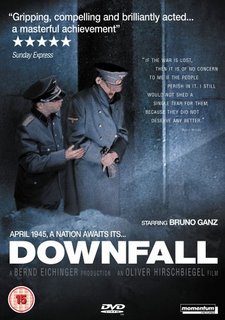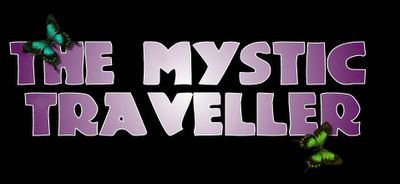Downfall & Kingdom Of Heaven: History In Films
 With the release of the German-made Downfall and the very Hollywood Kingdom Of Heaven, we are given an opportunity to compare differences of approach in the production of historical dramas.
With the release of the German-made Downfall and the very Hollywood Kingdom Of Heaven, we are given an opportunity to compare differences of approach in the production of historical dramas.Downfall is a brilliant piece of sober filmmaking. The director, Oliver Hirschbiegel, in contrast to Ridley Scott's sweeping Crusader epic, retains a low-key, hyper-realistic envisioning of the last days of Hitler, in his bunker below Berlin. The grey tones that smear the screen, compliment the dinginess of the setting, as well as the uniforms of the desperate Nazis.
Each of the German-speaking cast members offer eerily accurate performances that capture the personas of their historical counterparts with chilling effect. Controversy arose at how the film managed to evoke the human side of these most demonised of figures.
In particular, the Swiss actor Bruno Ganz, excels in the role of Hitler, bringing a nuanced, very real portrait. With his subtle ticks, Ganz not once steps into parody; an issue that has plagued previous actors' interpretations. His Hitler is a very real human being, who at times shows politeness and humility to people around him, whilst at other times, expresses the anger of a petulant flawed visionary.
In the opening scene, we are introduced to a very unfamiliar Hitler, as he interviews several young ladies to be his secretary. It is a jarring moment, as we are presented not with the hand-gesturing, podium thumping, raging dictator from newsreels, but rather a quietly spoken, patient, thoughtful man; the antithesis of everything the audience would have seen in previous portrayals.
At one point in the film, his secretary, Traudl Junge (Alexandra Maria Lara) asks Eva Braun (Julianne Kohler), how it is possible that Hitler could be so gentle and compassionate to some people, and yet so brutal to others. Braun replies that it is when Hitler is The Fuehrer that she sees his cruelty.
Some critics have complained that this humanising of the Hitler myth is a dangerous and unnecessary folly that somehow excuses or diminishes the nature of the actions that he cruelly perpetrated. Whilst he is most definitely a figure that does not deserve any sympathetic redemption, he was nonetheless a human being, and it is perhaps this aspect that continues to fascinate us. What kind of person could become so ruthless? What was the personality that lay behind the Holocaust? He remains an inexplicable, destructive anomaly on the conscience of humanity.
Downfall is exquisite in capturing the psychosis of Nazism and its personality cult as it crumbles. Soldiers sit around the bunker getting drunk and planning various methods of suicide, as the Russians close in. The almost manic farce of the situation, encapsulates both the helplessness and the blindness in which they have fallen under Hitler's spell. Magda Goebbels (Corrina Harfouch), the wife of the infamous propagandist, best illustrates the Nazi intoxication, when she stubbornly refuses to release her six children, because she believes that without National Socialism there would be no future for them to live. As a result, in perhaps one of cinema's most chilling scenes of infanticide, she breaks poison capsules in the mouths of her sleeping infants, while her husband stands outside.
Historical interpretation is a risky process that should never be taken lightly, especially when the subject has been the creator of so much cruelty and suffering. However, history should always try to be responsible to the truth, even if the truth is sometimes politically incorrect. Downfall is a thought-provoking film, which approaches its material with appropriate gravitas and responsibility.
Kingdom Of Heaven is a totally different historical beast to Downfall. As fine a director as Ridley Scott is, he is a filmmaker entirely at the mercy of a screenplay. If the screenplay is great, then the always-beautiful Scott imagery is entangled in cinematic perfection, as was the case with Alien, Blade Runner and Thelma And Louise. Unfortunately, on occasion, Scott has found himself creating magnificently handsome-looking films, with very little else on offer within, such as 1492, G.I. Jane and Hannibal. Sadly, Kingdom Of Heaven falls in this latter group.
Kingdom Of Heaven deals with the Crusades of the 13th. Century - a subject that is particularly sensitive in our current political climate. It is surprising to believe that any Hollywood suits would have been prepared to green light a project that focuses on a period of history when Muslim-Christian relations were at their worst, especially as they sink ever further in our present time. That said, the Crusades are a fascinating part of history that deserve to be told on film, preferably without the machismo or intellectual infantilism of Hollywood.
Scott was quite obviously aware of the responsibility that lay upon is shoulders in bringing this film to the screen, at this time. Yet, what is being proclaimed as a historically accurate representation of events, is in fact a politically correct affair, pandering not to offend, and therefore becoming an injustice to history. It comes off as a rather pointless heavy-handed pulpit dialogue with very little meat to chew.
Thespian lightweight, Orlando Bloom, takes on the lead, as yet another blacksmith discovering himself on an unexpected mission. In Pirates Of The Caribbean, he becomes a cutlass swinger of the high seas. Here, he discovers that he is the abandoned son of a major Crusader, played by the always-reliable Liam Neeson. Everything starts well, with an excellent skirmish in a blizzard, very reminiscent of the first battle in Scott's other period drama, Gladiator.
The problems begin when Bloom arrives in Jerusalem. There is so much PC tinkering with historical facts, that the contriving of it all becomes more offensive than if they had just filmed a story that portrayed events as they actually were.
In Scott's tale, the Crusaders that occupy the ancient city are split into two camps; those that fall under the watchful eye of Jeremy Irons, and are pro-relations with Saladin and the Muslims; and the Knights Templar, who are painted as the villains, desperate at all costs to battle against the vast Muslim armies. Historically, there was no such split of positions, as the Crusaders were all unified against the Muslims. It is obvious that Iron's band of merry men have been manufactured to create neutral supposition in the story. And this is one of many blazing annoyances.
A moment towards the end that just stinks of insensitivity trying to feign sensitivity, is when the Muslim leader, Saladin, lifts up a fallen crucifix and places it upon a table. Whilst the great leader may well have had a respect for the religion of his enemies, it is such a forced moment in the film, blaring out idealistic sentiments with all the subtlety of a bullhorn.
The glossiness of Kingdom Of Heaven, even with its attempt to capture the grubbiness of the times with a gloomy dark hue throughout, fails to muster, because it approaches the material with the same superficiality as a children's book about the Crusades.
Of course, there have been many so-called historical dramas that have been produced to merely entertain within the context of a particular period. Unfortunately, the Crusades is a time in history, which is surrounded by controversy that still reverberates today. Kingdom Of Heaven fails to maturely tackle the material, and instead, throws a tale more reminiscent of Lord Of The Rings than history. There is a film still to be made that fully captures the brutality, intensity and insanity of this chapter in our history.





1 comment:
We need more updates.
Post a Comment